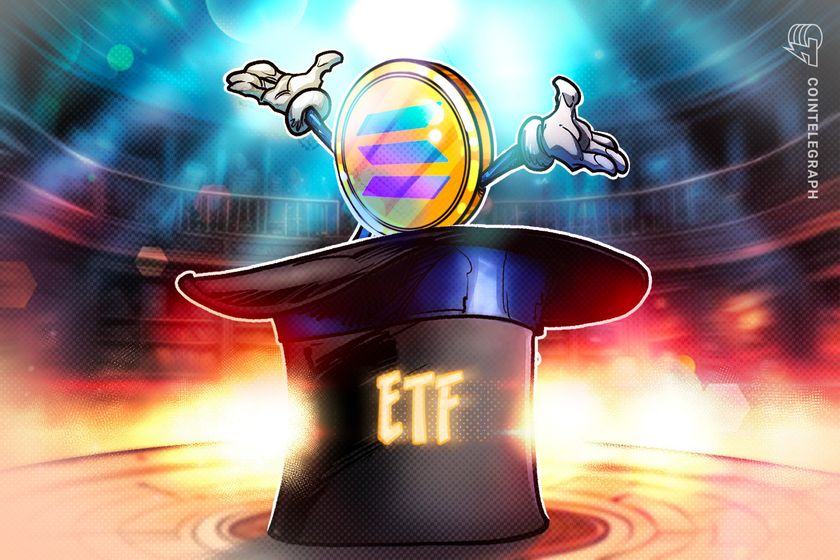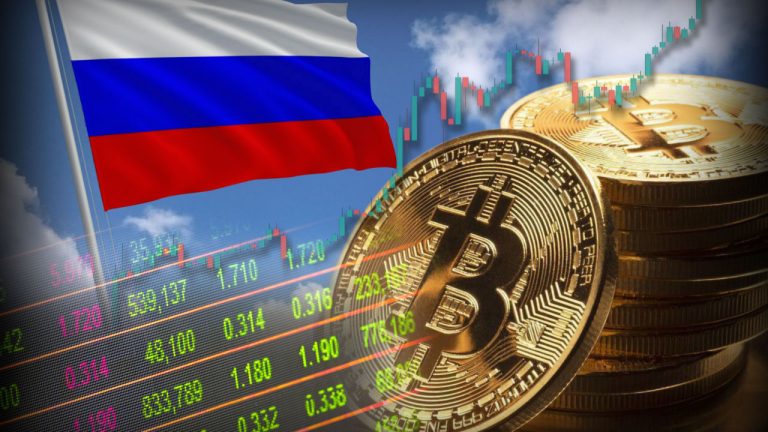
Bitwise would be competing with fellow asset managers VanEck and Canary Capital for an SEC-approved spot Solana ETF.
Digital asset management firm Bitwise has registered a statutory trust for a proposed spot Solana exchange-traded fund (ETF) in Delaware — indicating that it may soon file for an S-1 registration statement with the United States securities regulator.
The Bitwise Solana (SOL) ETF was incorporated on Nov. 20, according to the State of Delaware’s Division of Corporations website. The registered agent was listed as CSC Delaware Trust Company, which is headquartered in Wilmington, Delaware.
Bitwise would still need to submit a 19b-4 filing and S-1 registration statement to the US Securities and Exchange Commission to officially put its name in the race with VanEck and Canary Capital.
 A Financial Conduct Authority (FCA) official has emphasized the importance of high regulatory standards for crypto asset registrations. She defended the UK’s stringent rules, aiming to protect consumers and financial markets while fostering a competitive crypto sector. The regulator warned against relaxing standards, advocating instead for collaboration to build a secure foundation for sustainable innovation […]
A Financial Conduct Authority (FCA) official has emphasized the importance of high regulatory standards for crypto asset registrations. She defended the UK’s stringent rules, aiming to protect consumers and financial markets while fostering a competitive crypto sector. The regulator warned against relaxing standards, advocating instead for collaboration to build a secure foundation for sustainable innovation […] The U.S. Securities and Exchange Commission (SEC) has charged Cumberland DRW LLC, a Chicago-based firm, for operating as an unregistered dealer in over $2 billion of crypto assets classified as securities. The SEC claims that Cumberland violated federal securities laws by failing to register, raising concerns over investor protection. The charges seek injunctive relief and […]
The U.S. Securities and Exchange Commission (SEC) has charged Cumberland DRW LLC, a Chicago-based firm, for operating as an unregistered dealer in over $2 billion of crypto assets classified as securities. The SEC claims that Cumberland violated federal securities laws by failing to register, raising concerns over investor protection. The charges seek injunctive relief and […] The U.S. Securities and Exchange Commission (SEC) has charged Flyfish Club for conducting an unregistered offering of crypto asset securities through non-fungible tokens (NFTs), raising $14.8 million for an exclusive restaurant project. “Flyfish agreed to a cease-and-desist order, to pay a $750,000 civil penalty, and to comply with certain undertakings,” the regulator noted. SEC Charges […]
The U.S. Securities and Exchange Commission (SEC) has charged Flyfish Club for conducting an unregistered offering of crypto asset securities through non-fungible tokens (NFTs), raising $14.8 million for an exclusive restaurant project. “Flyfish agreed to a cease-and-desist order, to pay a $750,000 civil penalty, and to comply with certain undertakings,” the regulator noted. SEC Charges […] The UK Financial Conduct Authority (FCA) has revealed that over 87% of crypto registrations were either rejected, withdrawn, or refused as part of its ongoing efforts to combat fraud and enhance consumer protection. In its annual report, the FCA outlined new marketing rules for crypto assets. The regulator issued 450 consumer alerts against illegal crypto […]
The UK Financial Conduct Authority (FCA) has revealed that over 87% of crypto registrations were either rejected, withdrawn, or refused as part of its ongoing efforts to combat fraud and enhance consumer protection. In its annual report, the FCA outlined new marketing rules for crypto assets. The regulator issued 450 consumer alerts against illegal crypto […] Rune Christensen, a co-founder of the Makerdao project, has warned about the possible disruptions linked to hypothetical EU-wide requirements for defi fronteds to receive a license for operating. Christensen said this would decelerate the EU to the Stone Age, disrupting European defi access for less tech-savvy users. Makerdao Co-Founder Details Possible MiCA Disruptions in EU-Based […]
Rune Christensen, a co-founder of the Makerdao project, has warned about the possible disruptions linked to hypothetical EU-wide requirements for defi fronteds to receive a license for operating. Christensen said this would decelerate the EU to the Stone Age, disrupting European defi access for less tech-savvy users. Makerdao Co-Founder Details Possible MiCA Disruptions in EU-Based […]
Mark Cuban thinks the SEC could have saved U.S. customers from FTX had it adopted Japan’s approach to crypto regulation, but John Reed Stark disagrees.
Billionaire entrepreneur Mark Cuban has again locked horns with former securities chief John Reed Stark, this time over who was ultimately to blame for FTX’s collapse and the impact on creditors.
During a heated back-and-forth exchange, Cuban argued had the United States Securities and Exchange Commission set “clear regulations,” no one would have lost money from its collapse.
Stark earlier suggested cryptocurrency and stablecoins — including central bank digital currencies — solve no problems and that the crypto industry operates without regulatory oversight, consumer protections and audits, among other things.
You should read up on how Japan deals with regulation. https://t.co/yHCVwZAqvG
— Mark Cuban (@mcuban) July 4, 2023
When FTX crashed, NO ONE IN FTX JAPAN LOST MONEY.
If the USA/SEC had followed their example by setting clear regulations that required the separation of customer and business funds and clear… https://t.co/Msvn9o9PCU
Cuban argued that Japanese regulators — an increasingly Web3 friendly jurisdiction — are an example of a regulator that has done it right.
“When FTX crashed, NO ONE IN FTX JAPAN LOST MONEY,” he said.
Stark — a cryptocurrency skeptic — shot back, saying it “seems a bit of a stretch” to blame the SEC for the collapses of FTX, BlockFi, Celsius, Terra and Voyager, or what he called “dumpster fires.”
While Stark conceded that the SEC isn’t always right, he claimed the regulator saved investors “millions, perhaps even billions” in crypto losses.
The ex-SEC official claimed while the cryptocurrency industry seeks regulatory clarity, whenever rules are promulgated or proposed, “the crypto industry cries foul” and often responds by filing a “flashy legal challenge to its enactment.”
Cuban hit back, explaining the “best way” to prevent cryptocurrency fraud is to implement “brightline investor protection regulations.” He added:
“Anyone who doesn't register is de-facto in violation, can't operate and will be shut down. That's how you protect crypto investors.”
Stark, however, claims that the SEC only charged the likes of Binance, Coinbase, Beaxy and Bittrex months after the regulator made it clear that those firms were not in compliance.
Related: Lawmakers are wrong to target Gary Gensler
“[These firms] opted to ignore the SEC — and reap profits for as long as possible without registering,” Stark added.
That is worthy of study Mark, thanks.
— John Reed Stark (@JohnReedStark) July 4, 2023
The laws in Japan require crypto exchanges to register with authorities, to keep customer money separate from their own accounts, to hold at least 95% of customers’ digital assets in a cold wallet and to entrust clients’ holdings of…
It is the second time in three weeks that the pair have clashed over how cryptocurrency should be regulated.
On June 11, Cuban called out the SEC for purportedly failing to provide cryptocurrency firms with a clear registration process.
He claimed it’s “near impossible to know” what constitutes security because the SEC’s “Framework for ‘Investment Contract’ Analysis of Digital Assets” document fails to explain how cryptocurrency firms can come into compliance.
Magazine: Unstablecoins: Depegging, bank runs and other risks loom

De Nederlandsche Bank cannot share details of Binance’s registration failings in the country due to the confidentiality requirements of its supervisory laws.
The details behind Binance’s failed efforts to register for a virtual asset service provider (VASP) license in the Netherlands remain unclear due to the confidentiality requirements of the Dutch central bank’s supervisory laws.
On June 16, Binance announced it would terminate its services in the Netherlands with immediate effect, having failed to get the all-clear from De Nederlandse Bank (DNB). From July 17, Dutch customers will only be able to withdraw assets from the platform, while trading and deposits were stopped on the date of the announcement.
Binance claimed it had undergone a “comprehensive registration application process” to obtain a VASP license in the Netherlands and explored “alternative avenues” to serve Dutch residents in the country. The exchange indicated that it would continue its effort to obtain authorization to provide its services and products in the country.
Cointelegraph reached out to Tobias Oudejans, DNB press officer for supervision, fintech, cryptocurrencies, resolution and payment systems, to ascertain the final details of Binance’s failed registration efforts.
Oudejans said the central bank could not share more details about Binance’s registration due to legal requirements of supervisory laws:
“Because of confidentiality as demanded by our supervisory laws, we cannot elaborate on anything concerning our supervision on individual institutions or the possible licensing trajectories they may be in.”
Oudejans added that the DNB wanted to stress that its perceived silence over this specific supervisory outcome and similar issues ‘might wrongly be attributed to an unwillingness to comment,’ but was necessitated by Dutch laws.
Binance would have joined a list of 35 VASP that have completed registration with the DNB. This includes the likes of Coinbase Custody International Limited, Coinbase Europe Limited, eToro (Europe) Limited, BitPay and Bitstamp.
Related: EU’s new crypto law: How MiCA can make Europe a digital asset hub
Oudejans said VASP registration requirements in the Netherlands are in line with the similar requirements for other types of financial institutions under the DNB’s supervision. These are based on the Netherlands Anti-Money Laundering and Anti-Terrorist Financing Act, locally known as the Wet ter voorkoming van witwassen en financieren van terrorisme (WWFT).
The implementation of the European Union’s recently published Markets in Crypto-Assets regulation (MiCA) could provide Binance an alternative avenue to operate in the Netherlands come 2024. As Oudejans explained, the global exchange could gain access to the Dutch market if it has met the necessary requirements in other EU member states:
“It is not yet clear in what way MiCA will be implemented in the Netherlands, but indeed it looks like it will be a different law than the WWFT and possibly on a European level there may be access to the Dutch market for registered entities from other EU-countries.”
Binance has already indicated that it is ramping up efforts to be fully compliant with the new EU rules set out in MiCAR.
Binance was handed a $3.6 million (3.3 mln euro) by the DNB in July 2022 for operating without clearance in the Netherlands.
Meanwhile Coinbase obtained a green light from the DNB in September 2022 as it began to explore expansion away from the United States and into Europe. The U.S. exchange is embroiled in a high-profile legal battle with the U.S. Securities and Exchange Commission over allegations that it has been operating as an unregistered securities exchange, broker and clearing agency.
Magazine: Opinion: GOP crypto maxis almost as bad as Dems’ ‘anti-crypto army’

The billionaire is the latest to argue that the United States Securities and Exchange Commission hasn’t provided crypto firms with a registration process to follow.
Billionaire investor Mark Cuban has become one of the latest industry figures to call out the United States securities regulator for purportedly failing to provide cryptocurrency firms with a clear registration process.
The Shark Tank investor claimed in a June 11 tweet that no registration exists in the SEC’s “Framework for ‘Investment Contract’ Analysis of Digital Assets” document, making it “near impossible to know” what constitutes a security in the “crypto universe.”
“Unfortunately none of the elements presented in this page are part of the registration process. Which makes it near impossible to know, with or without an army of securities lawyers, what is or is not a security in the crypto universe.”
This is an SEC WEB PAGE about the howey test and tokens that often conflicts with what @SEC_Enforcement has said publicly. It's worth a read to get more clarity on what may or may not be a security https://t.co/m5E9V0Pd18
— Mark Cuban (@mcuban) June 11, 2023
Unfortunately none of the elements presented in this… https://t.co/iZ9Gn5SADK pic.twitter.com/kGHgsZkOaH
While a step-by-step outline isn’t provided, the document does briefly explain what is required for firms pursuant to U.S. federal securities laws.
Among the requirements included the need to disclose all information necessary for investors to make “informed investment decisions” and other “essential managerial efforts” that impact the success of the enterprise.
Meanwhile, Cuban noted that other sectors in the finance industry are receiving much more transparency from the SEC. Rather than labeling “stock loans” as securities or suing brokers and banks, they’re engaging in a “comments process,” Cuban explained.
“They should do the same thing with crypto as an effort to determine which aspects of crypto are securities and which are not,” he added.
Here is the SEC calling the stock loan industry "opague" and requiring transparency. Note, they are not calling "stock loans" a security as they are trying to do with the loaning of crypto assets. Nor are they suing the Stock Loan Departments of brokers/banks. They are going… https://t.co/0gSjAuAkWS pic.twitter.com/GfWm3m1jOB
— Mark Cuban (@mcuban) June 9, 2023
U.S. Senator Cynthia Lummis has also lashed out at the regulator for failing to provide a “robust legal framework” or at least offer “legal guidance” in some form for firms to comply with:
My statement on the SEC suing Coinbase, inc. https://t.co/5KNEM0IPSV pic.twitter.com/EgRIxrIcjj
— Senator Cynthia Lummis (@SenLummis) June 6, 2023
Last week, SEC Chair Gary Gensler claimed at the Global Exchange & Fintech Conference on June 8 that a registration process exists and that firms “know how to register.”
His comments were made in relation to Coinbase and Robinhood’s recent claims that they tried to register but the SEC rejected the attempt.
Related: SEC steps back from defining digital assets in new hedge fund rules
The SEC sued Binance on June 5 and Coinbase on June 6, alleging the exchanges broke various securities rules, most notably for purportedly offering cryptocurrencies that the regulator considers to be unregistered securities.
A total of 68 cryptocurrencies are now considered to be securities by the SEC.
Magazine: Crypto regulation: Does SEC Chair Gary Gensler have the final say?
 Digital asset exchanges must be obliged to provide user information to Russia’s law enforcement agencies, the country’s Prosecutor General has insisted. The circulation of cryptocurrencies in the Russian Federation needs to be regulated to counter money laundering, the official added. Cryptocurrency Exchanges Have to Report to Russian Authorities, Chief Prosecutor Says Crypto service providers should […]
Digital asset exchanges must be obliged to provide user information to Russia’s law enforcement agencies, the country’s Prosecutor General has insisted. The circulation of cryptocurrencies in the Russian Federation needs to be regulated to counter money laundering, the official added. Cryptocurrency Exchanges Have to Report to Russian Authorities, Chief Prosecutor Says Crypto service providers should […]